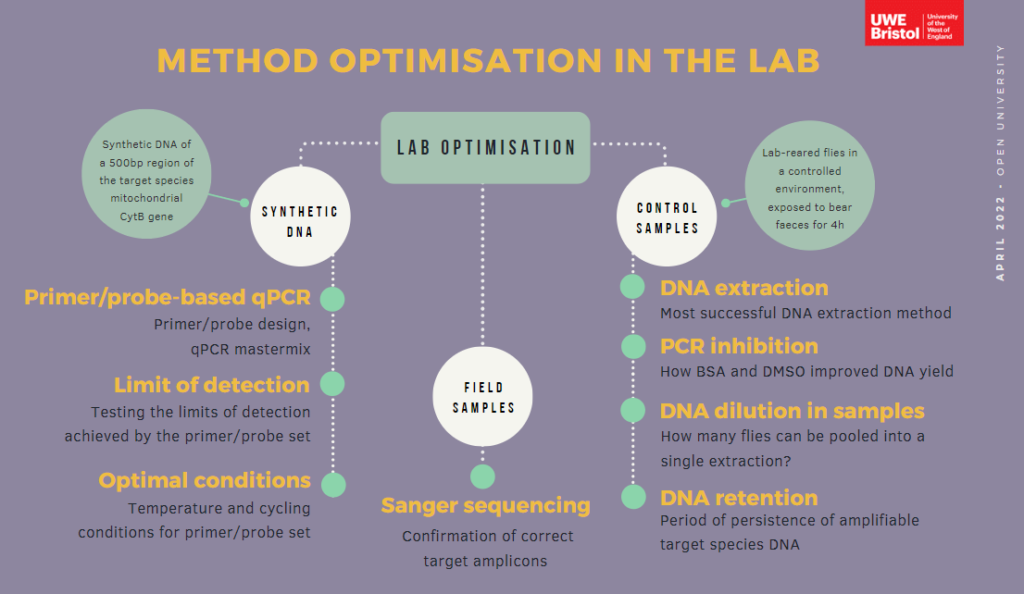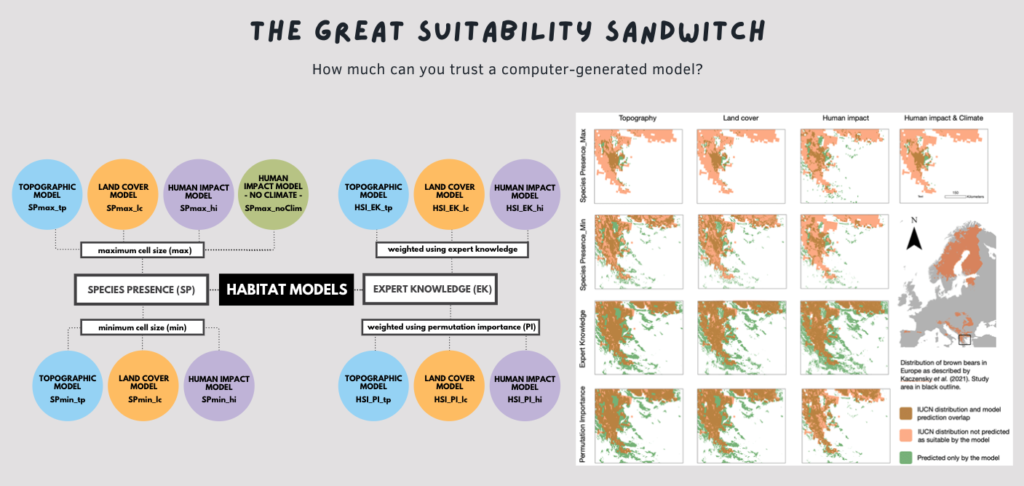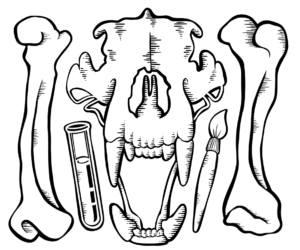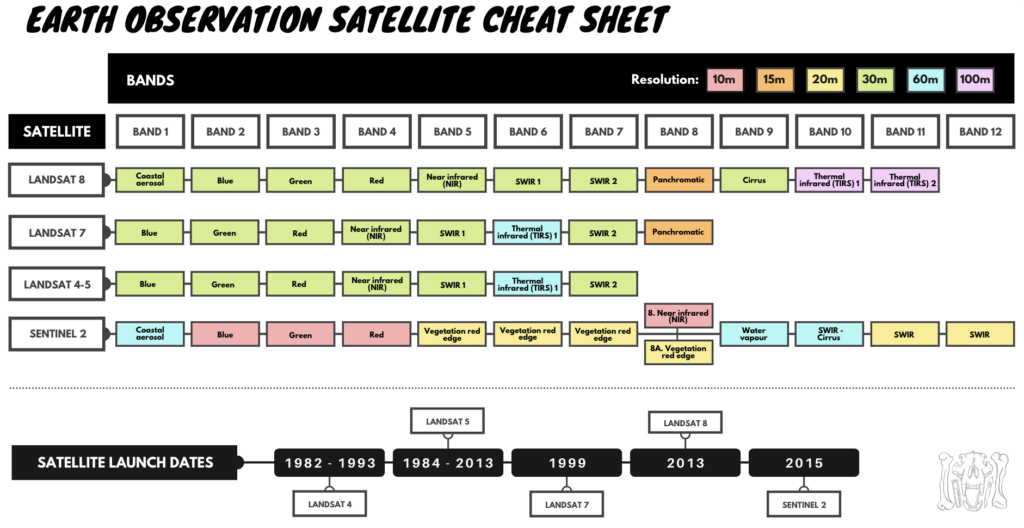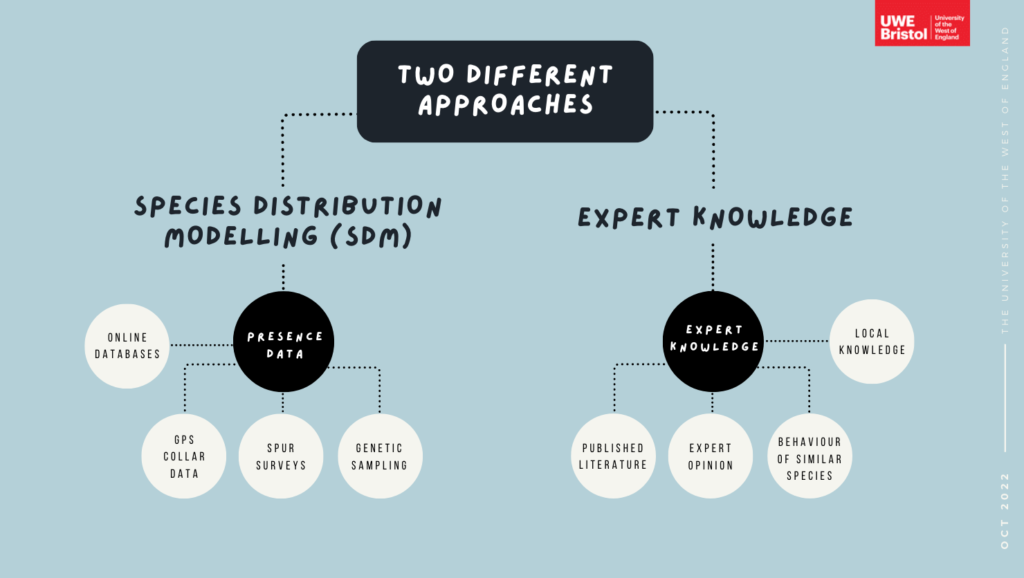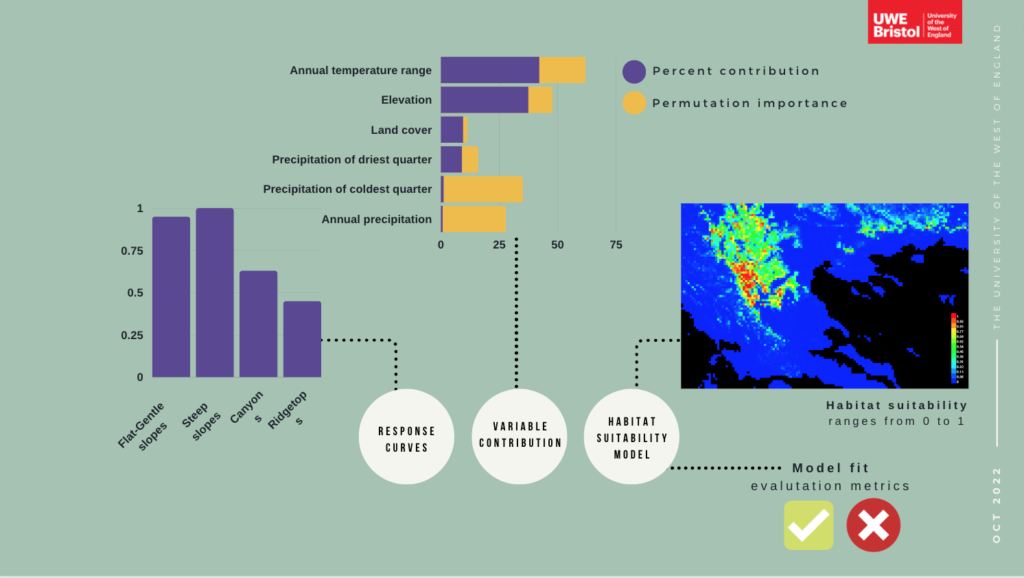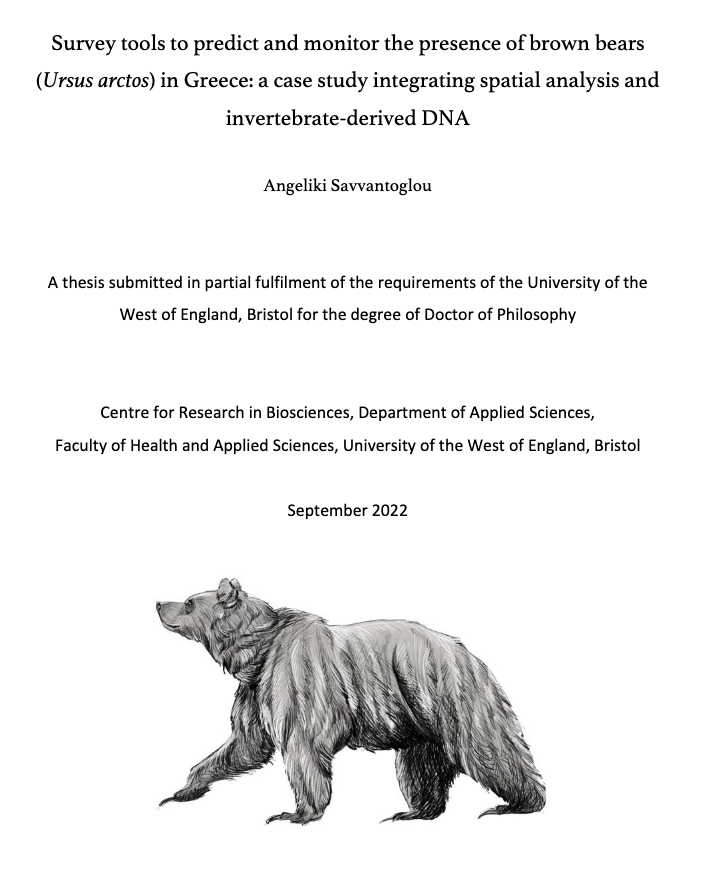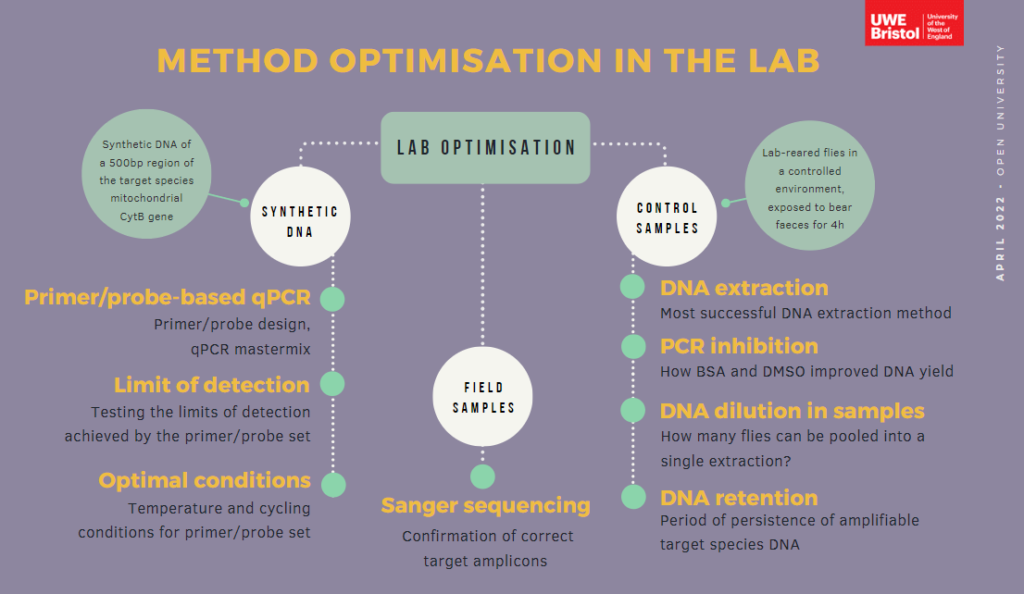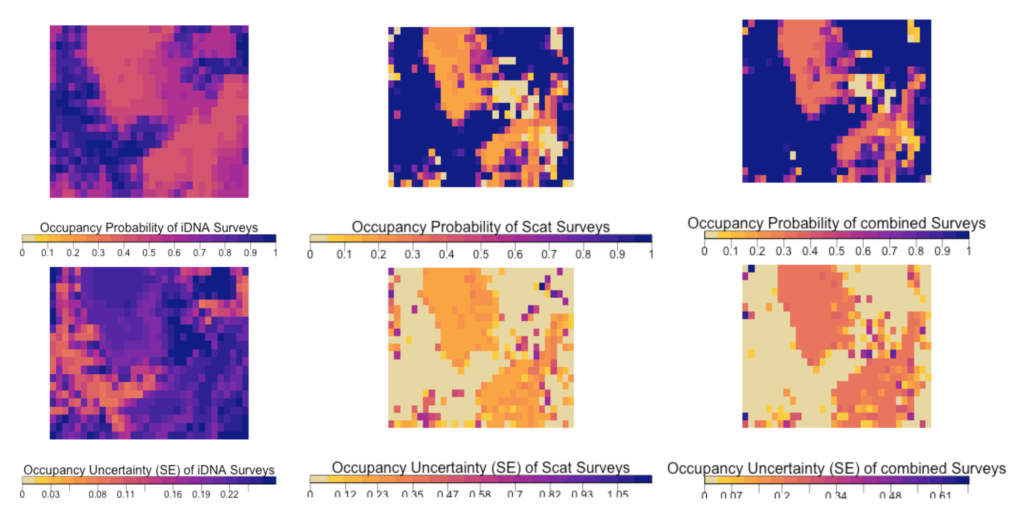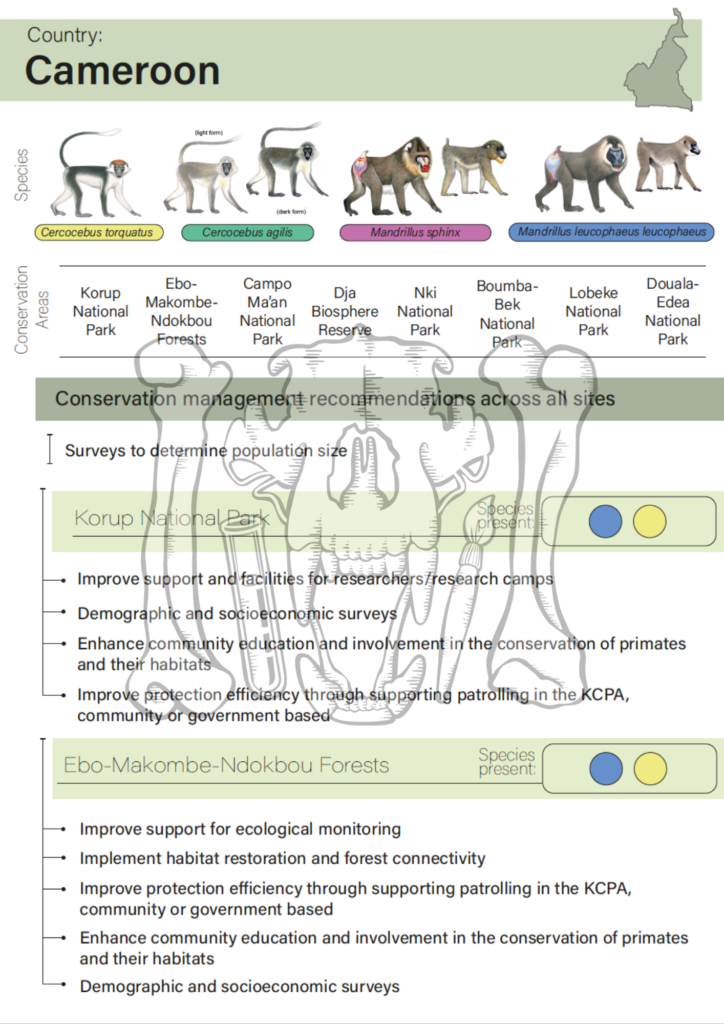
Our small research centre is equipped with a variety of surveying equipment for monitoring wildlife. Bear Bones organises and facilitates research expeditions, field research projects and seasonal surveys in the Mt. Voras region, North Greece. Bear Bones is a part of a small local cooperative, The Children’s Orchard, a collection of traditional crafts workshops, with a small local youth centre at its heart. When you join our projects, we welcome you to the mountain, our research, our workshops and the youth centre.
Summer internships, student placements, dissertation data collection, and research projects are all welcome. You will be working alongside Dr Angeliki Savvantoglou from Bear Bones, as the local guide and supervisor. Bear Bones and the Children’s Orchard Cooperative can facilitate research projects around ecology, wildlife conservation, environmental science and citizen science, but we are open to hear your ideas. We would love for you to run a project you are very passionate about and use your free time to rest, research or join our workshops and help the youth centre while learning some new skills.
We have worked hard to ensure that these experiences are affordable for you, have a minimum impact to the environment and habitats, and contribute to the local community and economy.
We are looking forward to introducing you to our village and the beautiful landscape of Mt. Voras. Get in touch if you want to meet the bears and all their poop – or if your interests are different to mine but you have a project in mind!
Testimonies from our students
"I absolutely loved the time I spent with Bear Bones and Panagitsa holds a place in my heart. Angeliki gave us the opportunity to be creative and follow our passions. She provided us with support and guidance not just professionally but also with a focus on well being to ensure everybody got the maximum enjoyment out of the experience alongside learning new skills and developing those we had already. Bear bones runs like a family, with everybody working together and holding each other up through sharing tasks and utilising individuals strengths. My dissertation project collecting water samples to check for environmental DNA of invasive crayfish, native crayfish and the crayfish plague grew organically during my first month in Greece and angeliki helped me to turn the idea into a project which I am working on this year at uni. I am excited to see the results from all my field work in Greece and I really appreciate the chance to study something of interest to me. To those of you who are contemplating bear bones science as a place to go to volunteer, or as a placement, or even for the tropical expedition module, I'd say..Take a leap and trust your instincts. I heard about the placements with bear bones and instinctively felt the need to apply after initially deciding against a placement and I had so many wonderful experiences that I will carry with me for life!”
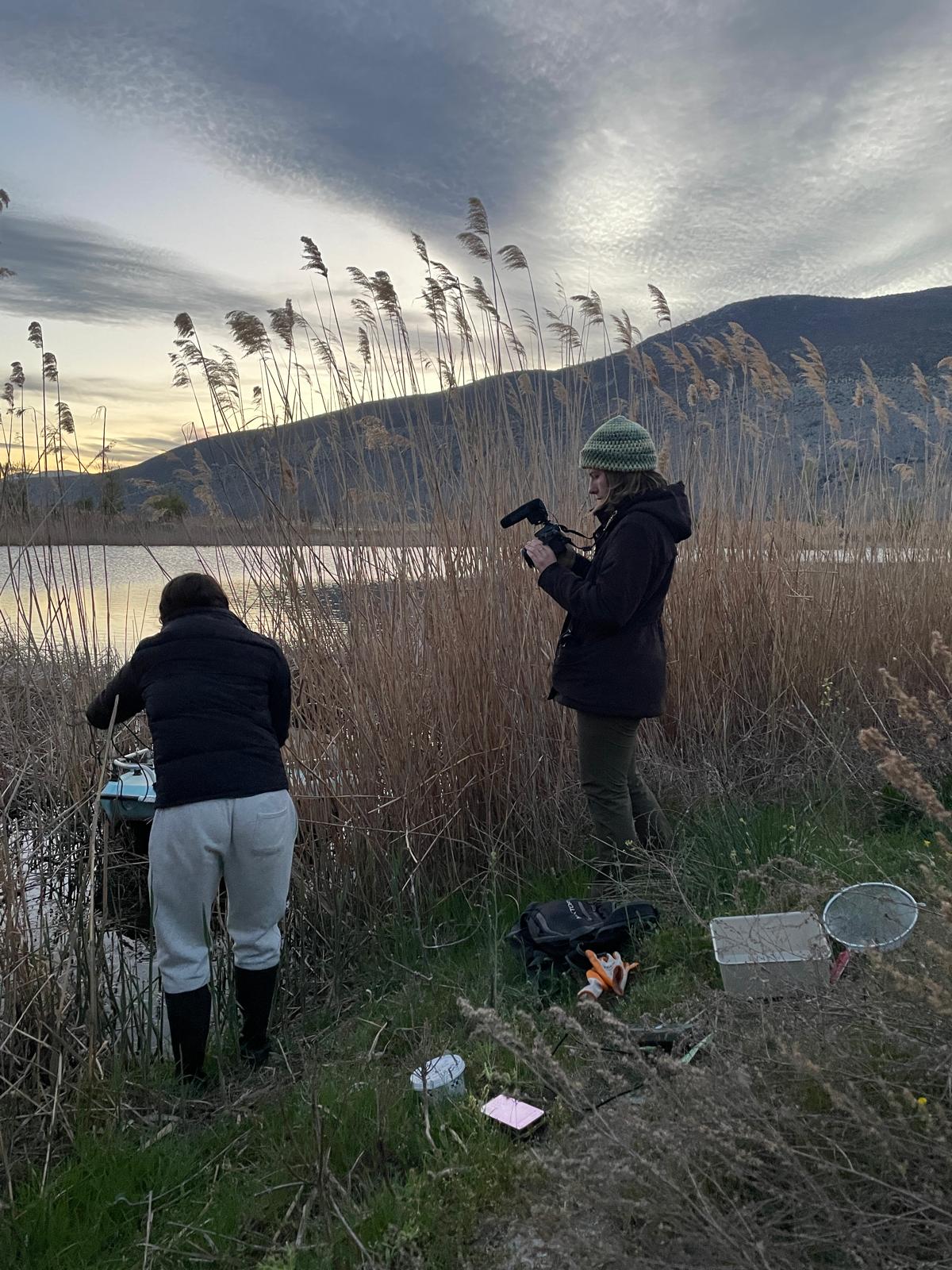
"Working with Angeliki and everyone in the Bear Bones team was an incredible holistic experience. Angeliki’s energy, enthusiasm and experience was awe-inspiring, the encouragement I felt for not only the creation of my own project but towards all aspects of my experience in Greece was so heartwarming and rewarding that it was incredibly difficult to see my time there end. Not only did I gain valuable insights into an incredible wild ecosystem, but there were so many amazing cultural and practical opportunities to gain new skills and experiences. The natural environment in the Pella region and Oros Voras natura 2000 site is so multi-faceted that there is something for everyone from Ornithology to anthropology there really is a buffet of knowledge to feast on. (Plus I came home with my new best friend!)"
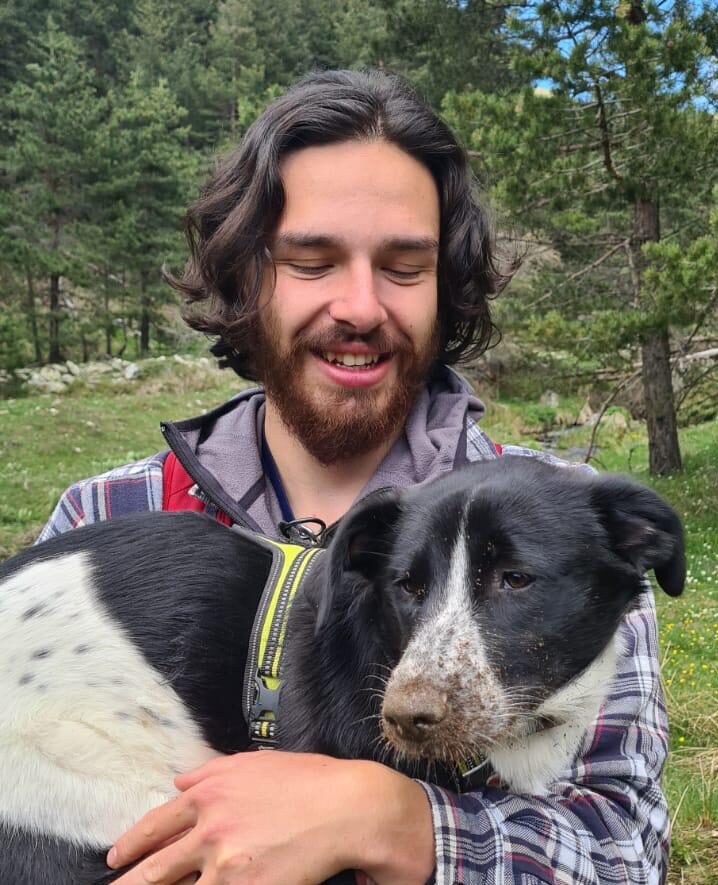
"Doing a placement with Bear Bones has not only been an exciting adventure in a new country, it’s also given me the opportunity to learn ecology in a real world setting, helping to consolidate everything I’ve learnt in my degree so far. Dr Angeliki Savvantoglou has a fantastic approach to facilitated learning, instead of setting a strict itinerary, she allows us the space to explore the area and find our passions, from there we create our own research projects and support each other's research which ultimately makes the whole experience a lot more meaningful. I have always learnt best by doing, so being able to learn in the field has significantly boosted my confidence in what can be a very overwhelming subject at times. During the placement, I gained a lot of insight into what it takes to get a project like this off the ground, from building shelters, and setting up a shared kitchen and laboratory, to acting as a student facilitator for a UWE residential field trip of third-year students, all while immersing oneself in the local community in a rural Greek village and exploring the country. I have developed valuable teamwork skills and exercised my own personal drive and initiative. If I ever had the chance I would return to Bear Bones in a heartbeat."

"During my time with Bear Bones Science, I felt encouraged to pursue my passions with the reassurance to help build confidence in my ideas. Angeliki is not only incredibly knowledgeable about the local area and ecology, her enthusiasm and excitement is infectious! She was able to give us the perfect balance of freedom to explore the mountain and find what we were most passionate about, while still providing the support and guidance to help us on our way. The beautiful landscape and remote location was breathtaking, watching the sunrise over the mountains every morning helped inspire the many adventures we went on during our time there. I feel so incredibly lucky to have been able to experience such a wonderful placement year, and learn so much from Angeliki and the other placement students. It was very hard to leave – I can’t wait to go back!"
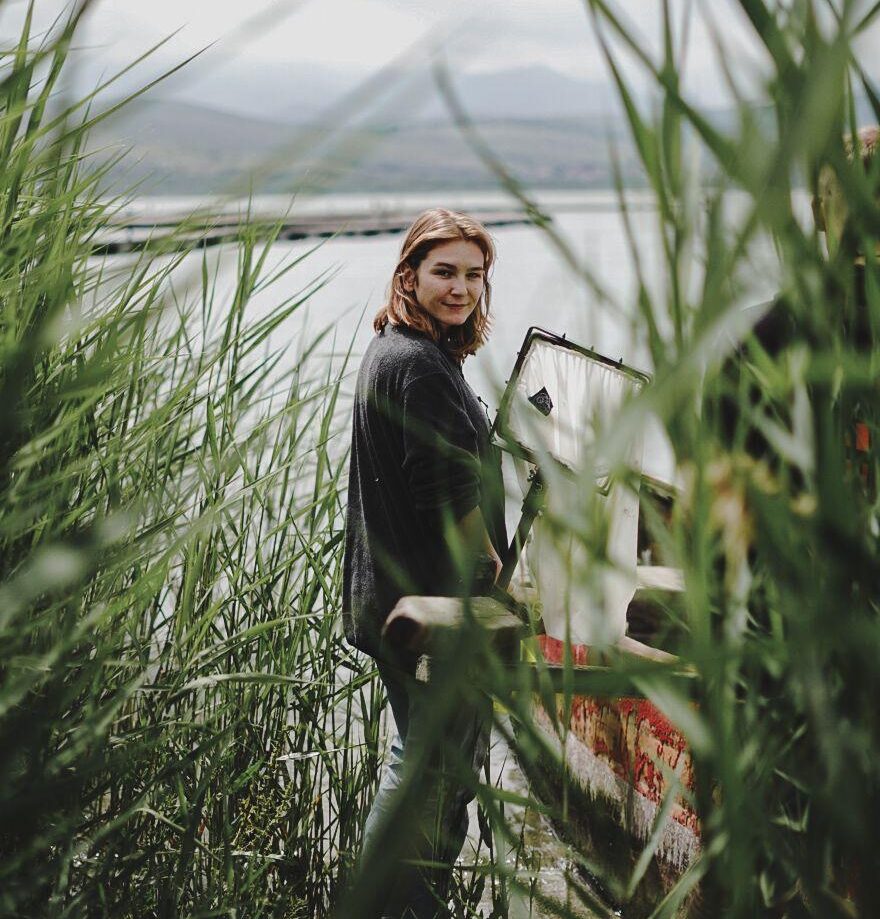
Undergraduate Research Expedition, 2022
Birdwatching and sampling the water in lake Petron.
Undergraduate Research Expedition, 2022
Brown bear tracking surveys in Mt. Voras
Undergraduate Research Expedition, 2022
Kayak wetland surveys
Undergraduate Research Expedition, 2022
Yellow-spotted salamander surveys in Mt. Voras
Undergraduate Research Expedition, 2022
Large carnivore conservation field talk, and tracks and signs survey, lead by Dr Yorgos Mertzanis and Maria Petridou
Undergraduate research expedition, University of the west of england, 2022
This was a residential university field expedition, organised by myself and other staff at the University of the West of England in collaboration with the Children’s Orchard Cooperative in the village of Panagitsa. The Children’s Orchard hosted the group of students, who camped at the youth centre field and were catered for by the Children’s Orchard Little Kitchen. The expedition included small mammal surveys, camera trapping, bird surveys, water quality monitoring, eDNA sampling, mammal tracks and signs surveys, talks by local NGOs, amphibian surveys, and many other activities, detailed in the report for the 2022 trip by the expedition leader, Dr Mark Steer.
Undergraduate Research Expedition, 2022
Brown bear Footage from our student camera traps in Mt. Voras
Undergraduate Research Expedition, 2022
Night surveys with UV light
Undergraduate Research Expedition, 2022
Kayak wetland surveys
Undergraduate Research Expedition, 2022
Yellow-spotted salamander surveys in Mt. Voras
Undergraduate Research Expedition, 2022
Handling a tortoise during a reptile survey at the basecamp
Undergraduate Research Expedition, 2022
Footage from our student camera traps in Mt. Voras
My role as GIS Instructor at the University of the West of England involved the research and development of GIS courses and materials for higher education. I created a teaching material to break down complex information into simple diagrams – I wanted to give my students what I wish I had when I was studying.
Below: Habitat modelling outputs from my PhD research – not all maps are pretty – some look like your grandma’s doily patterns.

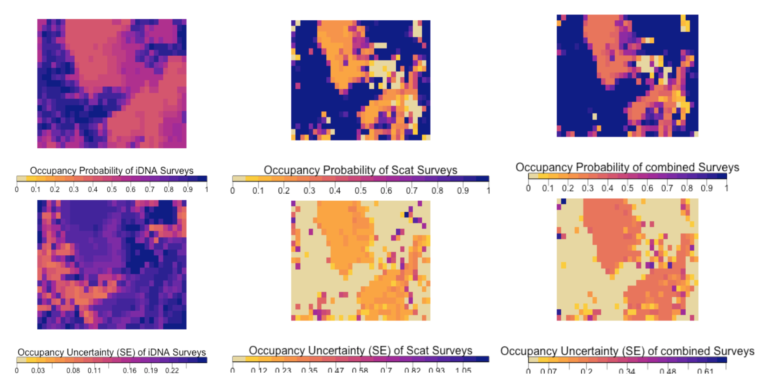
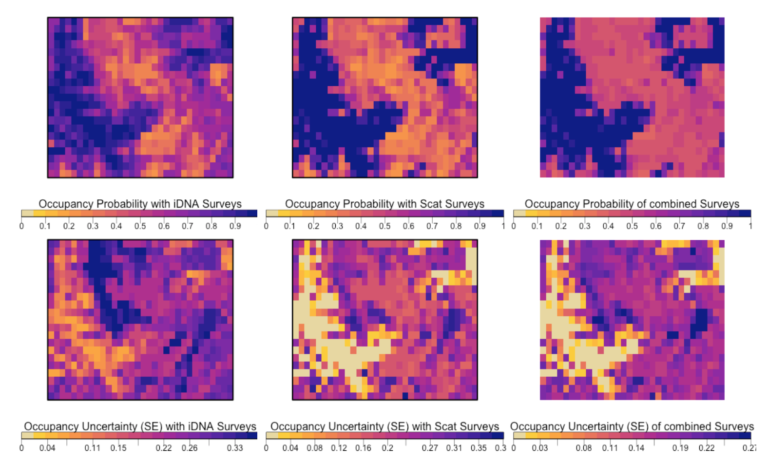


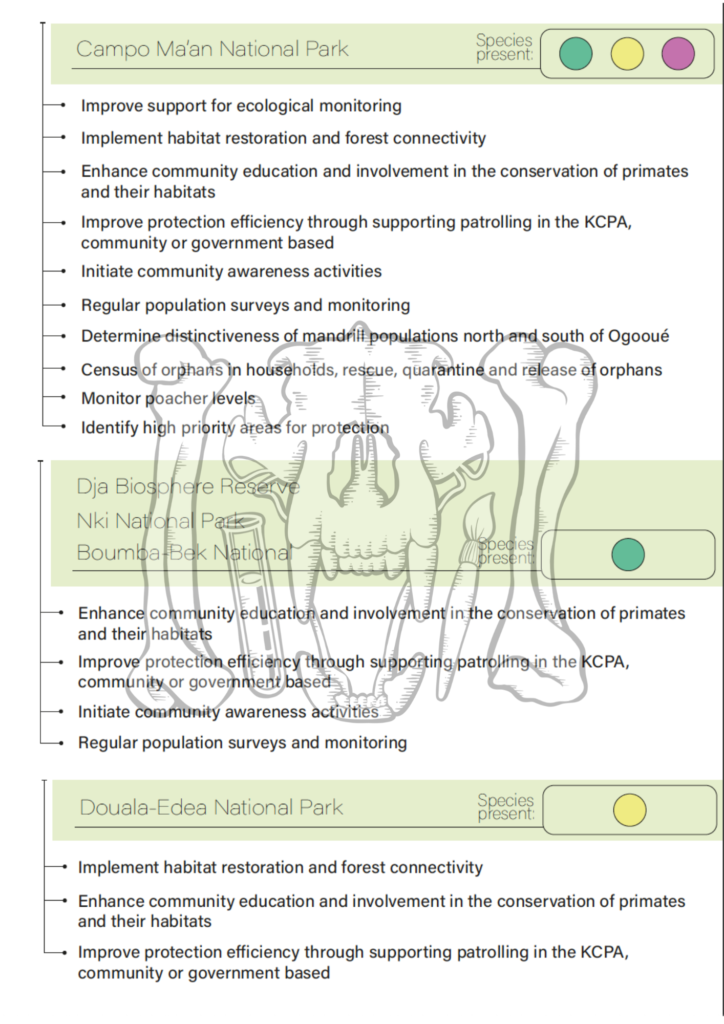
Above: Commission of distribution maps for primate species for an IUCN Action Plan, following IUCN mapping standards. Additionally, I worked with the team to design and put together stand-alone sheets with the most important information per country, to use when they visit local management bodies. The report is currently in review (watermarked here).
On my PhD, I explored alternative monitoring techniques with a focus on low-cost and time-efficient surveys for rare animals and in wildlife corridors. I used habitat suitability modelling techniques and genetic monitoring to understand the distribution of brown bears across a known wildlife corridor in north Greece.
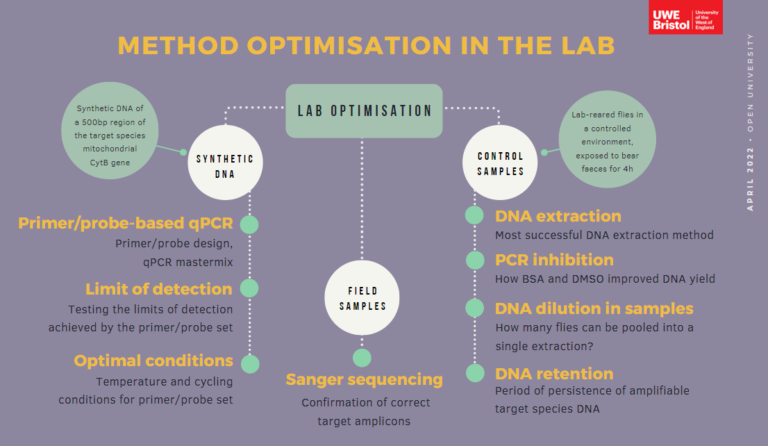


The reality of academic research is that is often remains in academic publications. I believe that it is the responsibility of every scientist to create accessible material and communicate their work.
My passion for scientific illustration and infographics started from my thirst to talk about my research. And I found that people really appreciate my love for bears (and all their poop!) and humorous and simple way I have to communicate science.
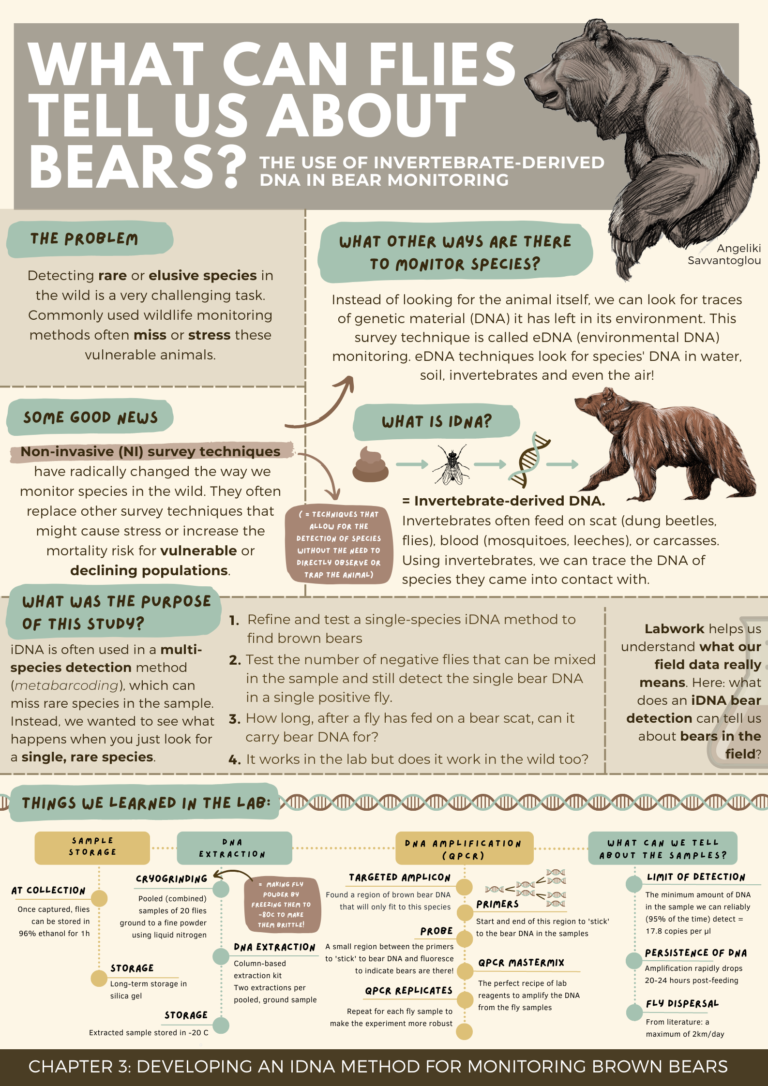
Bear Bones can cover a variety of topics in the form of lectures and workshops, including habitat suitability modelling, genetic monitoring (with a special focus on environmental DNA techniques), MaxEnt modelling, Occupancy modelling, R spatial analysis, GIS tutorials and field expedition preparation. An example of my lecture material is found below.
Available for online lectures and private/group GIS tutorials.

Bear Bones organises and facilitates research expeditions, field research projects and seasonal surveys in the Mt. Voras region, North Greece. Bear Bones is a part of a small local cooperative, The Children’s Orchard, a collection of traditional crafts workshops, with a small local youth centre at its heart. When you join our projects, we welcome you to the mountain, our research, our workshops and the youth centre.
Summer internships, student placements, dissertation data collection, and research projects are all welcome. You will be working alongside Dr Angeliki Savvantoglou from Bear Bones, as the local guide and supervisor. Bear Bones and the Children’s Orchard Cooperative can facilitate research projects around ecology, wildlife conservation, environmental science and citizen science, but we are open to hear your ideas. We would love for you to run a project you are very passionate about and use your free time to rest, research or join our workshops and help the youth centre while learning some new skills.
We have worked hard to ensure that these experiences are affordable for you, have a minimum impact to the environment and habitats, and contribute to the local community and economy.
We are looking forward to introducing you to our village and the beautiful landscape of Mt. Voras. Get in touch if you want to meet the bears and all their poop – or if your interests are different to mine but you have a project in mind!
TESTIMONIES FROM OUR STUDENTS
"I absolutely loved the time I spent with Bear Bones and Panagitsa holds a place in my heart. Angeliki gave us the opportunity to be creative and follow our passions. She provided us with support and guidance not just professionally but also with a focus on well being to ensure everybody got the maximum enjoyment out of the experience alongside learning new skills and developing those we had already. Bear bones runs like a family, with everybody working together and holding each other up through sharing tasks and utilising individuals strengths. My dissertation project collecting water samples to check for environmental DNA of invasive crayfish, native crayfish and the crayfish plague grew organically during my first month in Greece and angeliki helped me to turn the idea into a project which I am working on this year at uni. I am excited to see the results from all my field work in Greece and I really appreciate the chance to study something of interest to me. To those of you who are contemplating bear bones science as a place to go to volunteer, or as a placement, or even for the tropical expedition module, I'd say..Take a leap and trust your instincts. I heard about the placements with bear bones and instinctively felt the need to apply after initially deciding against a placement and I had so many wonderful experiences that I will carry with me for life!”

"Working with Angeliki and everyone in the Bear Bones team was an incredible holistic experience. Angeliki’s energy, enthusiasm and experience was awe-inspiring, the encouragement I felt for not only the creation of my own project but towards all aspects of my experience in Greece was so heartwarming and rewarding that it was incredibly difficult to see my time there end. Not only did I gain valuable insights into an incredible wild ecosystem, but there were so many amazing cultural and practical opportunities to gain new skills and experiences. The natural environment in the Pella region and Oros Voras natura 2000 site is so multi-faceted that there is something for everyone from Ornithology to anthropology there really is a buffet of knowledge to feast on. (Plus I came home with my new best friend!)"

"Doing a placement with Bear Bones has not only been an exciting adventure in a new country, it’s also given me the opportunity to learn ecology in a real world setting, helping to consolidate everything I’ve learnt in my degree so far. Dr Angeliki Savvantoglou has a fantastic approach to facilitated learning, instead of setting a strict itinerary, she allows us the space to explore the area and find our passions, from there we create our own research projects and support each other's research which ultimately makes the whole experience a lot more meaningful. I have always learnt best by doing, so being able to learn in the field has significantly boosted my confidence in what can be a very overwhelming subject at times. During the placement, I gained a lot of insight into what it takes to get a project like this off the ground, from building shelters, and setting up a shared kitchen and laboratory, to acting as a student facilitator for a UWE residential field trip of third-year students, all while immersing oneself in the local community in a rural Greek village and exploring the country. I have developed valuable teamwork skills and exercised my own personal drive and initiative. If I ever had the chance I would return to Bear Bones in a heartbeat."

"During my time with Bear Bones Science, I felt encouraged to pursue my passions with the reassurance to help build confidence in my ideas. Angeliki is not only incredibly knowledgeable about the local area and ecology, her enthusiasm and excitement is infectious! She was able to give us the perfect balance of freedom to explore the mountain and find what we were most passionate about, while still providing the support and guidance to help us on our way. The beautiful landscape and remote location was breathtaking, watching the sunrise over the mountains every morning helped inspire the many adventures we went on during our time there. I feel so incredibly lucky to have been able to experience such a wonderful placement year, and learn so much from Angeliki and the other placement students. It was very hard to leave – I can’t wait to go back!"

Undergraduate research expedition, University of the west of england, 2022
Undergraduate Research Expedition, 2022
Birdwatching and sampling the water in lake Petron.
Undergraduate Research Expedition, 2022
Brown bear tracking surveys in Mt. Voras
Undergraduate Research Expedition, 2022
Kayak wetland surveys
Undergraduate Research Expedition, 2022
Yellow-spotted salamander surveys in Mt. Voras
Undergraduate Research Expedition, 2022
Large carnivore conservation field talk, and tracks and signs survey, lead by Dr Yorgos Mertzanis and Maria Petridou
This was a residential university field expedition, organised by myself and other staff at the University of the West of England in collaboration with the Children’s Orchard Cooperative in the village of Panagitsa. The Children’s Orchard hosted the group of students, who camped at the youth centre field and were catered for by the Children’s Orchard Little Kitchen. The expedition included small mammal surveys, camera trapping, bird surveys, water quality monitoring, eDNA sampling, mammal tracks and signs surveys, talks by local NGOs, amphibian surveys, and many other activities, detailed in the report by the expedition leader, Dr Mark Steer.
Undergraduate Research Expedition, 2022
Brown bear footage from our student camera traps in Mt. Voras
Undergraduate Research Expedition, 2022
Night surveys with UV light
Undergraduate Research Expedition, 2022
Kayak wetland surveys
Undergraduate Research Expedition, 2022
Yellow-spotted salamander surveys in Mt. Voras
Undergraduate Research Expedition, 2022
Handling a tortoise during a reptile survey at the basecamp
Undergraduate Research Expedition, 2022
Footage from our student camera traps in Mt. Voras
My role as GIS Instructor at the University of the West of England involved the research and development of GIS courses and materials for higher education. I created a teaching material to break down complex information into simple diagrams – I wanted to give my students what I wish I had when I was studying.
Habitat modelling outputs from my PhD research – not all maps are pretty – some look like your grandma’s doily patterns.
Commission of distribution maps for primate species for an IUCN Action Plan, following IUCN mapping standards. Additionally, I worked with the team to design and put together stand-alone sheets with the most important information per country, to use when they visit local management bodies. The report is currently in review (watermarked here).
On my PhD, I explored alternative monitoring techniques with a focus on low-cost and time-efficient surveys for rare animals and in wildlife corridors. I used habitat suitability modelling techniques and genetic monitoring to understand the distribution of brown bears across a known wildlife corridor in north Greece.



The reality of academic research is that is often remains in academic publications. I believe that it is the responsibility of every scientist to create accessible material and communicate their work.
My passion for scientific illustration and infographics started from my thirst to talk about my research. And I found that people really appreciate my love for bears (and all their poop!) and humorous and simple way I have to communicate science.

Bear Bones can cover a variety of topics in the form of lectures and workshops, including habitat suitability modelling, genetic monitoring (with a special focus on environmental DNA techniques), MaxEnt modelling, Occupancy modelling, R spatial analysis, GIS tutorials and field expedition preparation. An example of my lecture material is found below.
Available for online lectures and private/group GIS tutorials.
